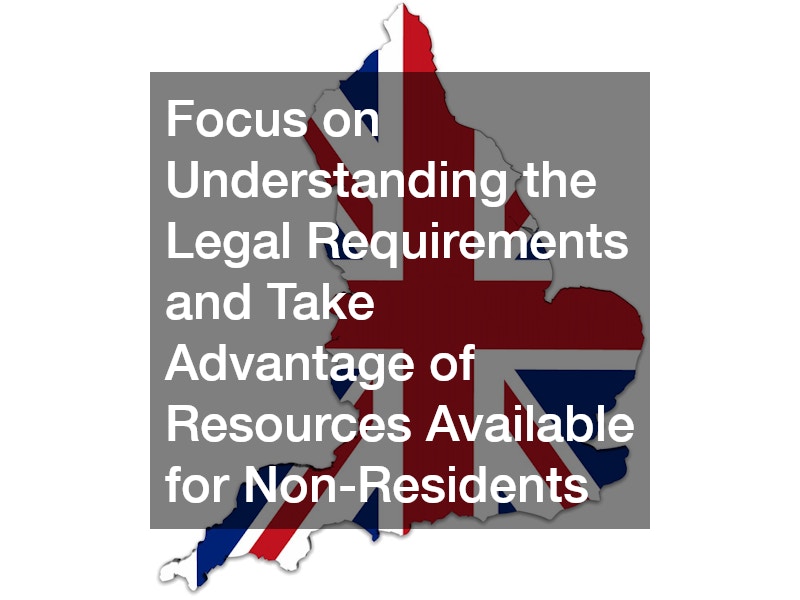Thinking about launching a business in the UK? It’s an exciting venture that offers a wealth of opportunities, from tapping into a diverse market to benefiting from a supportive entrepreneurial ecosystem. However, knowing where to start is crucial for your success. As a non-resident, you may face unique challenges, such as understanding legal requirements and the application process. This step-by-step guide will outline the key steps for setting up your business in the UK, tailored specifically for non-residents eager to seize this rewarding opportunity.
Step 1: Understanding Visa Requirements
As a non-resident, you can set up a limited company in the UK without needing a visa or traveling there. However, if you plan to relocate to manage your business, securing the right visa is essential.
The Innovator Founder visa is a good option if you have an innovative business idea endorsed by an approved body. Other visa options include the Global Talent visa and the UK Expansion visa. Each of these visas has specific requirements, including the need for a sponsorship licence for employers if you intend to hire overseas talent. Understanding the details of these requirements is important for smooth operations.
Step 2: Choosing Your Business Structure
A limited company offers benefits like limited liability and tax efficiencies, but it’s important to consider whether it’s the best structure for your goals. Alternatives include becoming a sole trader or entering a partnership, each with different implications for taxes and compliance. A sole trader structure is simpler but means you’re personally liable for any debts. It’s wise to seek professional advice before making a decision to ensure you choose the structure that best aligns with your business objectives.
Step 3: Picking a Company Name
Choosing a unique company name is vital. It should reflect your brand and comply with UK regulations, typically ending in “Limited” or “LTD.” This not only helps establish your brand identity but also ensures legal compliance. Before finalizing your name, check the company’s house register to make sure your desired name isn’t already taken. Additionally, it’s good practice to consider the availability of a matching domain name if you plan to have an online presence.
Step 4: Appointing Directors and Company Secretary
Your company must have at least one director who can be a non-resident. It’s essential to appoint someone responsible for the day-to-day management of the company, as they will have legal obligations. You will also need a registered UK office for correspondence, which can be a virtual office if you’re not physically present in the country. While appointing a company secretary is optional, having one can help manage administrative tasks and ensure compliance with legal requirements.
Step 5: Deciding on Shareholders
Determine who will hold shares in your company and how many shares to issue. This is a crucial step because the ownership structure can affect control and decision-making within your company. Remember, anyone holding over 25% of shares is classified as a person with significant control (PSC), which must be documented in your company’s register. Transparency in shareholder details is vital for regulatory compliance and building trust with potential investors.
Step 6: Preparing Essential Legal Documents
Key documents like the Memorandum of Association and Articles of Association are necessary for your company formation. The memorandum is a simple statement of intent to form the company, while the articles outline how the company will operate, including procedures for meetings and decision-making. Consider using standard articles or drafting your own with legal assistance to ensure they meet your business needs. Proper documentation not only facilitates smoother operations but also enhances credibility with stakeholders.
Step 7: Keeping Records
Maintaining proper records is essential for compliance and smooth operations. You’ll need to keep track of financial records, shareholder information, and meeting minutes, among other documentation. This is not only a legal requirement but also aids in the efficient management of your business. Regular record-keeping helps prepare for audits and ensures that you stay on top of your financial obligations, including tax submissions.
In Summary
Starting a business in the UK as a non-resident can be a rewarding endeavor, offering access to a vibrant market and numerous opportunities for growth. By following these steps—from understanding visa requirements and choosing the right business structure to maintaining meticulous records—you can set up your company with confidence.
Remember that seeking professional advice is invaluable in making informed decisions tailored to your unique situation. As you start this endeavor, focus on understanding the legal requirements and take advantage of resources available for non-residents. With careful planning and execution, you can successfully launch your business and thrive in the UK’s dynamic entrepreneurial ecosystem.
.






